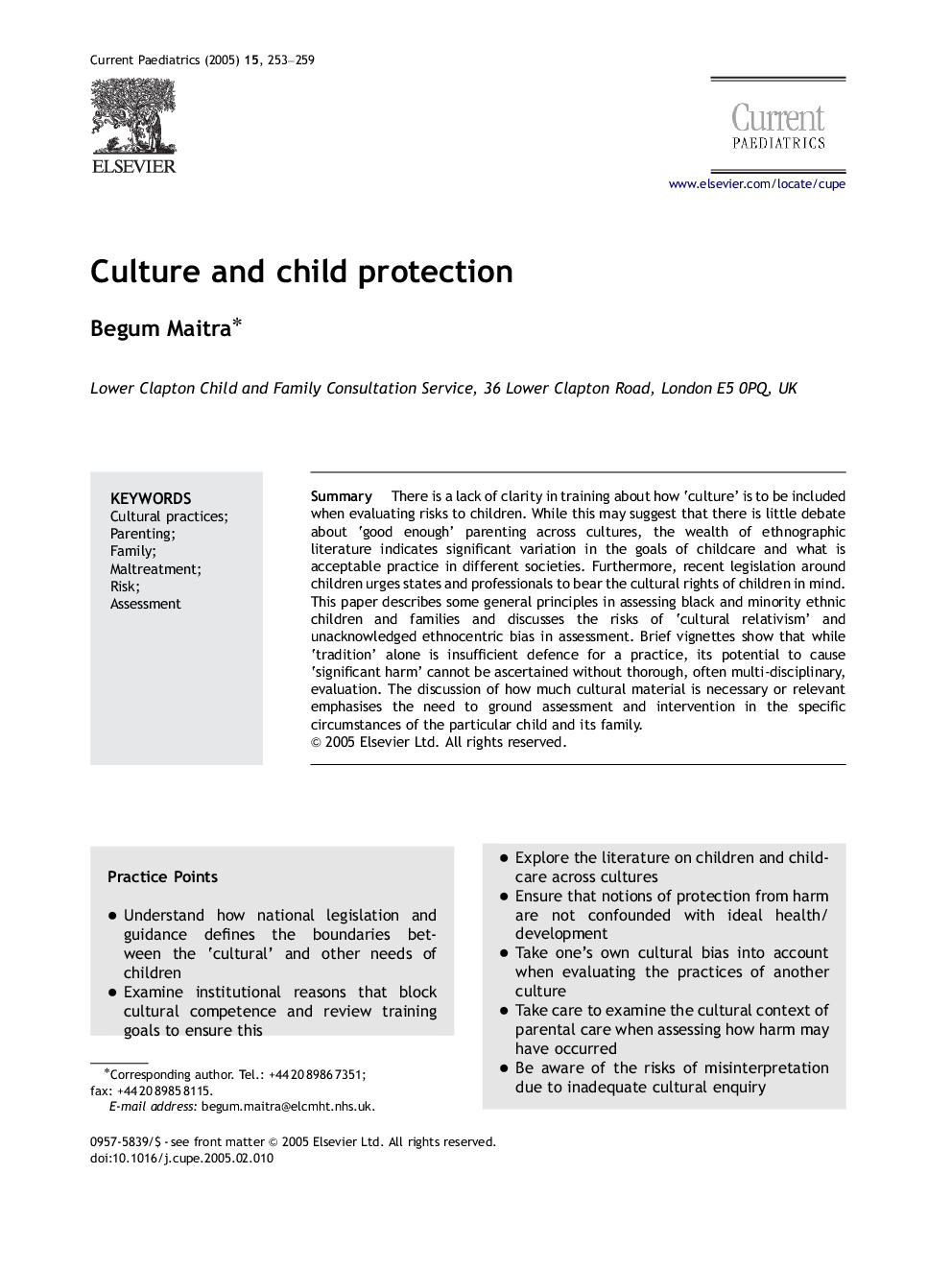| Article ID | Journal | Published Year | Pages | File Type |
|---|---|---|---|---|
| 9372242 | Current Paediatrics | 2005 | 7 Pages |
Abstract
There is a lack of clarity in training about how 'culture' is to be included when evaluating risks to children. While this may suggest that there is little debate about 'good enough' parenting across cultures, the wealth of ethnographic literature indicates significant variation in the goals of childcare and what is acceptable practice in different societies. Furthermore, recent legislation around children urges states and professionals to bear the cultural rights of children in mind. This paper describes some general principles in assessing black and minority ethnic children and families and discusses the risks of 'cultural relativism' and unacknowledged ethnocentric bias in assessment. Brief vignettes show that while 'tradition' alone is insufficient defence for a practice, its potential to cause 'significant harm' cannot be ascertained without thorough, often multi-disciplinary, evaluation. The discussion of how much cultural material is necessary or relevant emphasises the need to ground assessment and intervention in the specific circumstances of the particular child and its family.
Related Topics
Health Sciences
Medicine and Dentistry
Perinatology, Pediatrics and Child Health
Authors
Begum Maitra,
